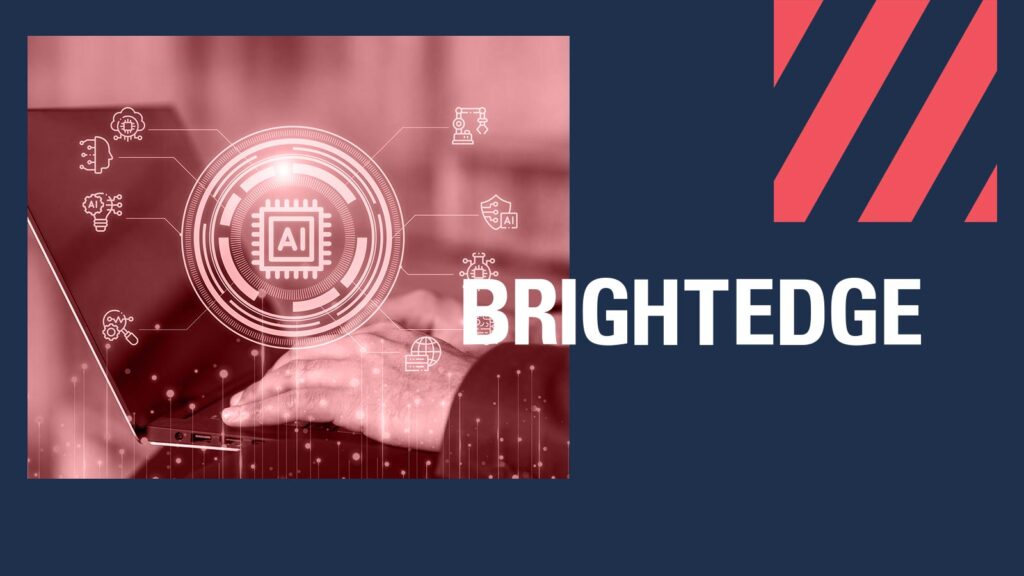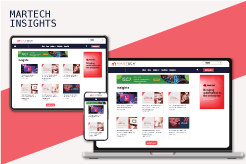Research reveals Google is focused on specialized and expert news sources, comparative shopping content, and new AIO visual formats, as SearchGPT outpaces Perplexity in referral growth for many large brands
BrightEdge, the global leader in AI-driven organic search, content, and digital marketing automation, released new research highlighting significant shifts in Google’s AI Overview (AIO) rollout.
“The refinement of Google’s AI Overviews represents a key moment for Google as it turns on AI for more users and prepares for mainstream deployment,” said Jim Yu, Founder and Executive Chairman at BrightEdge. “Our new research highlights how Google is adapting given the increased popularity of AI-native search engines like SearchGPT from artificial intelligence giant OpenAI and Perplexity. In the last few months, we’ve seen seismic shifts in Search; Google and other players are on the offensive.”
Marketing Tech Insights: Uniphore Launches X-Stream
Top Findings from the Report Include:
Specialized and Expert Sources Gain Prominence in Google AIO
AI Overviews are overhauling its citations, directing traffic to expert, niche sources and enhancing the depth, transparency and credibility of AI-generated results. Healthcare, education, technology and the news industries saw significant changes in what AIO sources in its results. Most notably:
- In the news and media industry, citations for USAToday.com dropped 10.3% and NYTimes.com dropped 3.1%. However, Bloomberg.com saw an increase in AIO results due to its industry-specific and specialized content around the stock market, business news and finance trends.
- Technology review websites experienced a similar decrease in AIO mentions, as TechRadar.com dropped 47.3% and TomsGuide.com dropped 16.4%. This change aligns with AIO’s preference for product and industry-specific expert sources and less on consumer-focused insights and reporting.
- Healthcare websites saw significant changes in what AIO cites for its results, steering away from consumer-focused media and blogs, and opting for authoritative expert content instead. Consumer news and general health websites like VerywellHealth.com (-77.9%) and EverydayHealth.com (-95.6%) saw declines, while MayoClinic.org (+32.4%) and the National Institutes of Health website from the U.S. Department of Health & Human Services (+83.2%) saw rapid increases in AIO inclusion.
- Additionally, niche health queries resulted in an uptick in specialty health websites, including Spine-Health.com (+266.7%) and Arthritis.org (+89.5%). Terms like “ACL tear symptoms” now benefit from comprehensive AI-generated answers, demonstrating Google’s push toward more detailed, factual content in AI Overviews.
AI Overviews Push Comparative Content to Shoppers
During a period of high inflation and high expectations from consumers, shoppers are more conscious about their purchases and want to compare and contrast products across brands and retailers.
As the holiday shopping season approaches, BrightEdge found that AIOs are refining search results to focus on comparative content, which rose by 12% in August. AIOs prioritized product carousels with engaging imagery, which rose by 172%. Unordered lists (lists of items that are related but in no specific order, such as general searches for “winter boots” or “iPhone cases”) also increased by 42%.
These adjustments make AI Overviews more user-friendly by organizing complex product features and specifications for easier decision-making.
Interestingly, eCommerce queries saw a 90% drop in AI Overviews for non-logged-in users, signaling a cautious approach by Google to introduce AI-powered results in this high-transaction sector.
Marketing Tech Insights: Vonage and SAP Partner
Gen AI takes up more Real Estate on Google Search
Google is experimenting with the visual formatting for AIOs. After months of shrinking AIO screen real estate, Brightedge data shows that the panel has increased in height by 10%, growing from 647 pixels in July to 712 pixels in August.
This additional screen real estate allows for richer, more comprehensive answers and comparisons. This change is particularly evident in the eCommerce sector, where high-resolution product visuals and detailed specs and descriptions are presented more prominently. Additionally, the extra space for AIOs aligns with the rise in product carousels and unordered lists.
Google’s end goal is likely to help companies elevate their search results and provide users with a better browsing experience, where they can compare and contrast their options and easily find pertinent information for each result.
“As Google continues to refine AI Overviews, we expect to see more gradual changes that improve visibility for expert sources with detailed information and engaging visuals, whether it’s for the eCommerce sector or news and media industry,” said Albert Gouyet, VP of Operations at BrightEdge. “AIOs are likely going to become more selective with the content from which it sources its responses. Marketers have a unique opportunity to capitalize on these changes by ensuring their content is high-quality in imagery and information.”
SearchGPT Surges Ahead in Referral Traffic
BrightEdge also found explosive growth for SearchGPT, which quickly surpassed Perplexity in terms of referral traffic despite having been in a limited beta. This rapid expansion is a positive indicator for both marketers and publishers as Search and AI begin to show their full potential. Perplexity and Claude continue to grow at 14% and 26% monthly rates, respectively, though from smaller user bases.
Marketing Tech Insights: Roku Unveils Ads Manager
For media inquiries, you can write to our MarTech Newsroom at news@intentamplify.com
Source – Globe Newswire



